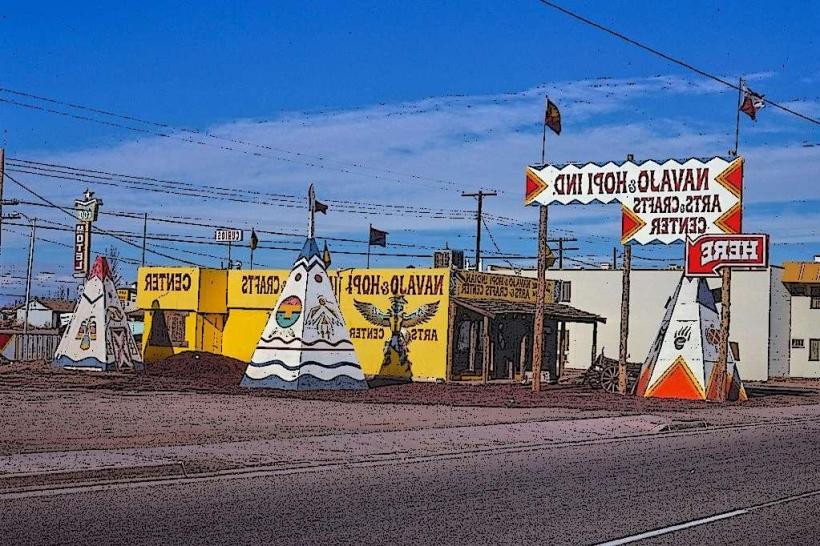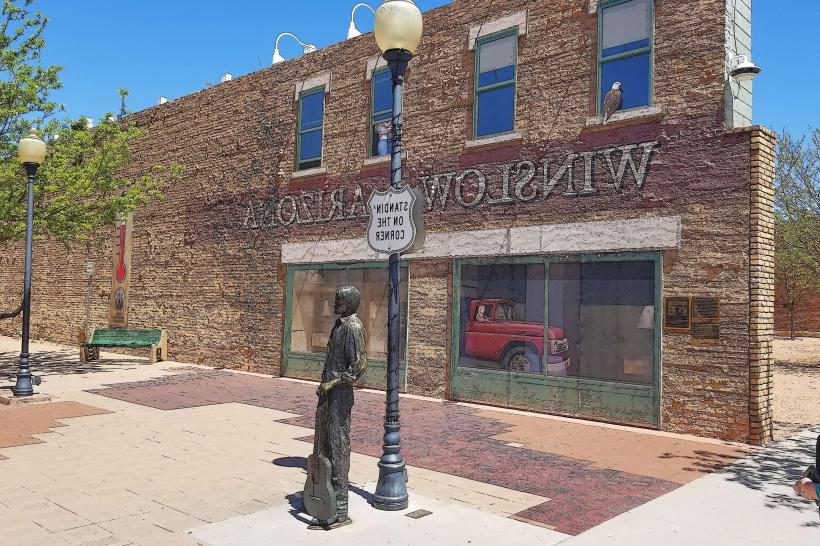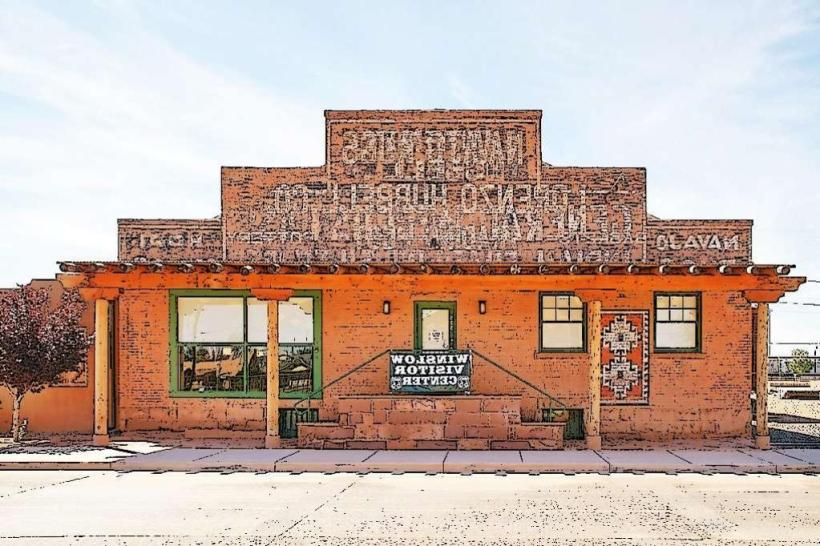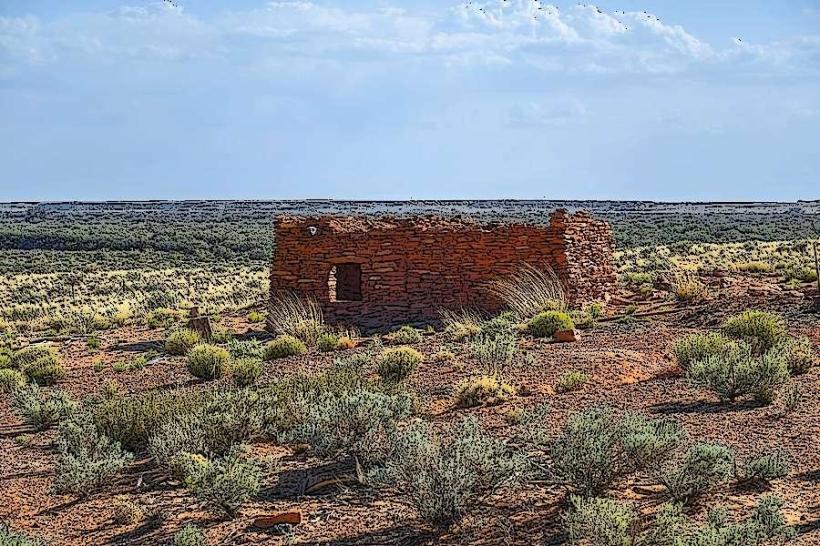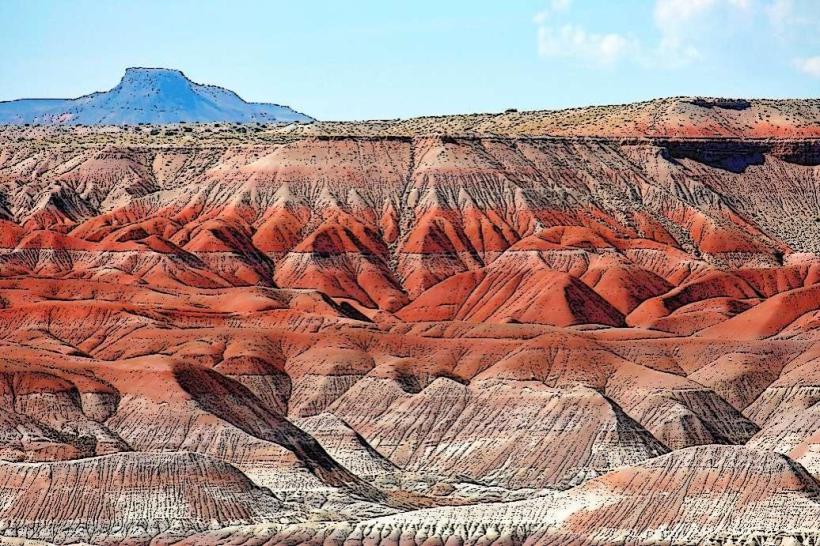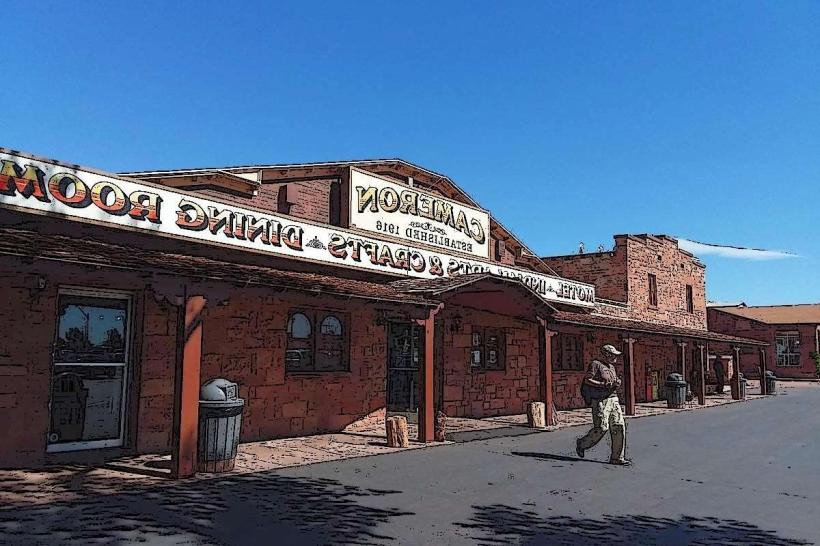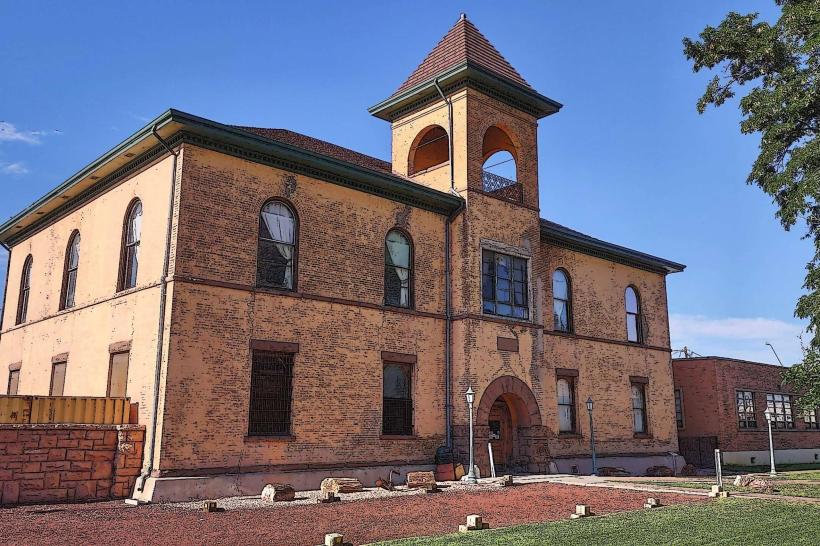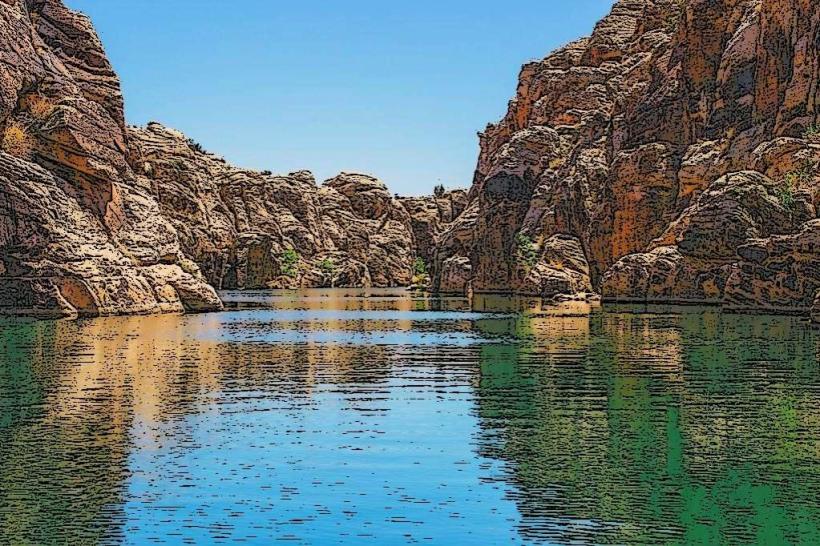Information
Landmark: Winslow Meteor CraterCity: Winslow
Country: USA Arizona
Continent: North America
Winslow Meteor Crater, Winslow, USA Arizona, North America
Meteor Crater – Detailed Description
Location & General Overview:
Meteor Crater, also known as the Barringer Crater, is located in northern Arizona, about 20 miles west of Winslow and just south of Interstate 40. It's the most well-preserved meteorite impact site on Earth and a dramatic reminder of the cosmic forces that shape our planet.
Roughly 50,000 years ago, a nickel-iron meteorite approximately 160 feet (50 meters) wide struck the high desert plains of what is now Arizona. The impact released energy equivalent to more than 10 million tons of TNT, creating a vast, bowl-shaped depression in the earth.
Crater Dimensions & Geology:
Diameter: Approximately 0.75 miles (1.2 kilometers)
Depth: About 560 feet (170 meters)
Rim Height: Around 150 feet (45 meters) above the surrounding plains
Crater Age: Estimated at 50,000 years, dating to the Pleistocene epoch
Origin: Caused by a high-speed meteorite traveling around 26,000 mph (42,000 kph)
The surrounding area is relatively flat, which makes the size and depth of the crater even more striking. The arid climate has preserved the crater remarkably well, with minimal erosion over the millennia.
Visitor Experience:
1. Observation Points & Trails:
Several outdoor observation decks provide panoramic views of the crater.
Short, guided rim tours are offered (weather and conditions permitting), giving insight into the crater’s formation and geology.
Due to safety and preservation, hiking into the crater is not permitted.
2. Discovery Center & Museum:
Houses interactive displays explaining the science of meteors, asteroids, and impact craters.
Includes exhibits on the history of Meteor Crater, geology, planetary defense, and the tools used in impact science.
Features a real piece of the original meteorite, weighing over 1,400 pounds (635 kg).
3. Astronaut Connection:
In the 1960s, NASA astronauts trained here for lunar missions. The rugged, cratered terrain closely resembles the surface of the Moon, making it an ideal site for simulations.
The museum includes displays and artifacts highlighting this chapter of space exploration.
4. Theater & Film:
A large screen shows a 10-minute film called "Impact: The Mystery of Meteor Crater," providing a cinematic account of the meteor strike and its scientific significance.
5. Gift Shop & Amenities:
Well-stocked gift shop with meteorite replicas, educational toys, space memorabilia, and souvenirs.
On-site café with indoor seating and snacks.
Clean restrooms and plenty of parking available.
Scientific Significance:
Meteor Crater was the first crater on Earth proven to be caused by a meteorite impact, thanks to the work of Daniel Barringer in the early 1900s. Prior to his research, it was commonly believed that such craters were caused by volcanic activity.
The crater helped establish a new scientific field-planetary impact science-which has informed our understanding of cratering processes on Earth, the Moon, Mars, and other celestial bodies.
Ownership & Access:
Meteor Crater is privately owned by the Barringer family and operated by Meteor Crater Enterprises.
It is open to the public daily, with admission fees used for site maintenance, staffing, and ongoing scientific research.
Easily accessible from I-40, with clear signage and well-maintained roads leading to the visitor complex.
Atmosphere & Visual Impact:
The crater delivers a surreal and humbling experience. Its stark, lunar-like landscape and sheer scale offer a powerful reminder of Earth’s vulnerability to cosmic events. The silence around the rim, interrupted only by wind and the occasional hawk, adds to its dramatic atmosphere.
From the edge, visitors can see layers of exposed rock, torn and uplifted by the force of impact, and debris scattered across the plains-geological evidence of a moment that literally reshaped the land in an instant.

